Dealing with Vitamin Deficiencies Post-Gallbladder Removal: A Comprehensive Guide
The gallbladder may be a small organ, but it plays a significant role in our overall health, particularly in absorbing fat-soluble vitamins.
But what happens when this tiny powerhouse is removed? Welcome to our comprehensive guide on dealing with vitamin deficiencies post-gallbladder removal.
Each year, over 600,000 people in the U.S. undergo gallbladder removal surgery. Many of them don’t realize the potential nutritional changes that can follow. This guide is your roadmap to understanding and managing these changes, helping you thrive even after your gallbladder is gone.
With the right knowledge, guidance, and care, you can maintain optimal health and wellness in your post-surgery journey. After the gallbladder removal, let’s dive into the fascinating world of nutrition and health!
Vitamin Deficiency After Gallbladder Removal
Identifying vitamin deficiencies after gallbladder removal can be crucial to managing your health post-surgery.
While symptoms can vary based on which specific vitamin is deficient, there are common signs that you might be dealing with a vitamin deficiency. These can include fatigue, dizziness, hair loss, skin problems, and a weakened immune system.
Let’s look at specific signs related to vitamin deficiencies A, D, E, and K.
Vitamin A Deficiency
This might manifest as difficulty with night vision or dry and scaly skin. Severe deficiencies can lead to complete blindness.
Vitamin D Deficiency
Often dubbed the “sunshine vitamin,” a lack of vitamin D can lead to bone pain and muscle weakness. In severe cases, it may result in osteomalacia in adults, a condition characterized by soft and weak bones.
Vitamin E Deficiency
This is rare, but it can cause nerve and muscle damage when it happens, resulting in loss of body movement control, muscle weakness, and vision problems. It can also impair the immune system.
Vitamin K Deficiency
This vitamin is vital for blood clotting. Thus, deficiency can lead to excessive bleeding and easy bruising. It can cause bleeding in critical organs or the brain in severe cases.
If you experience any of these symptoms after gallbladder removal, it is essential to seek medical advice. Regular check-ups and blood tests can help detect vitamin deficiencies early, which is critical to managing them effectively.
Managing Vitamin Deficiencies After Gallbladder Removal
Dealing with vitamin deficiencies after gallbladder removal involves a blend of dietary adjustments and potential supplementation, always under the guidance of a healthcare professional.
The primary goal is to ensure you are getting adequate amounts of vitamins A, D, E, and K. Here are some ways to manage potential deficiencies:
Dietary Adjustments
Eating a balanced diet rich in vitamins is crucial. Incorporate foods high in these vitamins into your meals. Some examples include:
- Vitamin A: Foods like sweet potatoes, carrots, and dark leafy greens are rich in Vitamin A.
- Vitamin D: Fatty fish, fortified dairy products, and egg yolks are good sources.
- Vitamin E: Nuts, seeds, spinach, and broccoli are packed with Vitamin E.
- Vitamin K: Excellent sources include leafy green vegetables, broccoli, and Brussels sprouts.
However, remember that these vitamins are fat-soluble and best absorbed with fat. You should therefore consume these foods with a source of healthy fat, like avocados or olive oil, to increase their absorption.
Vitamin Supplements
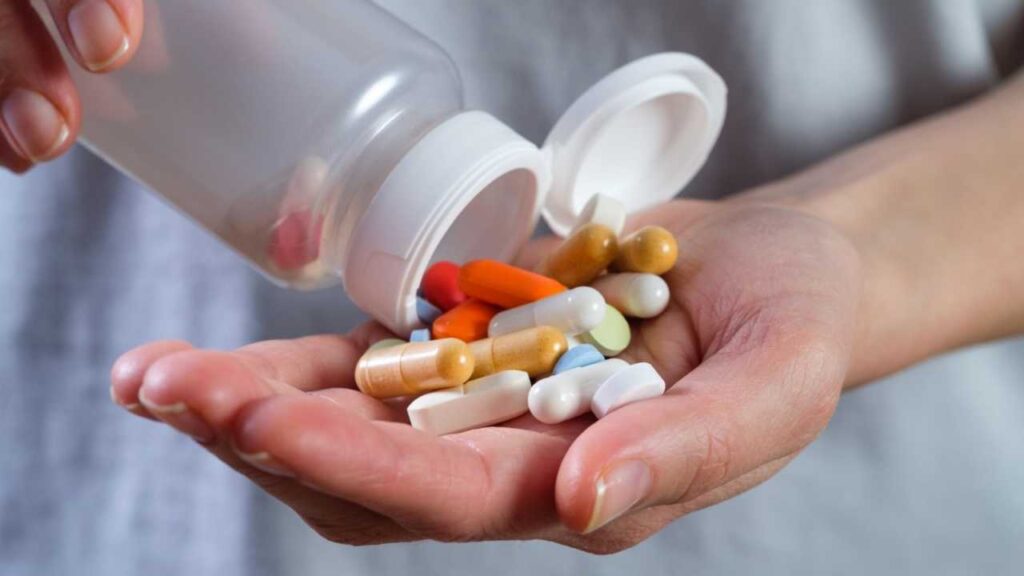
Sometimes, diet alone may not be enough, especially if your body has trouble absorbing these vitamins. In such cases, your healthcare provider may recommend taking vitamin supplements to help meet your needs.
Remember that supplements should complement a balanced diet, not replace it. Always consult with a healthcare professional before starting any new supplement regimen.
Regular Monitoring
Regular check-ups are crucial to track your vitamin levels and adjust your diet or supplementation plan. Blood tests can help identify a vitamin deficiency early and prevent complications.
Managing Symptoms
If you experience symptoms of fat malabsorption, such as diarrhea or bloating after eating fatty foods, you may need to adjust your diet.
Eating smaller, more frequent meals and reducing intake of unhealthy fats can help manage these symptoms. A healthcare professional or a dietitian can provide personalized advice.
Understanding the Gallbladder’s Role in Vitamin Absorption
Before delving into the aftermath of gallbladder removal, let’s first comprehend the gallbladder’s function in our body.
The gallbladder, nestled under your liver, acts as a storage unit for bile. Bile is a yellow-green fluid your liver produces, rich in cholesterol and bile salts. It is crucial for the digestion and absorption of fats and fat-soluble vitamins from your food.
When you consume a meal, especially one high in fat, your gallbladder springs into action, releasing bile into your small intestine. The bile emulsifies the fat, breaking it down into smaller particles. This process increases the surface area of the fat, making it more accessible to digestive enzymes.
This fat breakdown is vital for absorbing the fat-soluble vitamins: A, D, E, and K. These vitamins are necessary for various bodily functions. Vitamin A is critical for vision and immune function; Vitamin D plays a vital role in calcium absorption and bone health; Vitamin E is an antioxidant, protecting your cells from damage; and Vitamin K is essential for blood clotting and bone health.
Therefore, the gallbladder helps maintain the balance of these vital vitamins in your body by assisting in their absorption through its role in fat digestion.
Gallbladder Removal and Its Impact on Vitamin Absorption
Gallbladder removal surgery, or cholecystectomy, is often recommended for gallstones and other gallbladder conditions. Although this procedure is generally safe and effective, it fundamentally changes your body’s digestive dynamics, particularly regarding the digestion and absorption of fats and fat-soluble vitamins.
Post-surgery, your liver produces bile, but there’s no longer a gallbladder to store it. Instead, the bile drips continuously into the small intestine rather than being released in large amounts when needed. This change in bile flow can lead to less efficient fat digestion, particularly if you consume a high-fat meal.
When fat isn’t effectively broken down due to lower bile concentrations, it becomes more challenging for your body to absorb the fat-soluble vitamins (A, D, E, K) vital for various bodily functions. As a result, even if you consume enough of these vitamins through your diet, your body might not absorb them efficiently, leading to potential deficiencies.
This is not a certainty for everyone who undergoes gallbladder removal. Many people adjust over time, and their bodies compensate for the loss of the gallbladder.
However, others may experience ongoing issues with fat malabsorption and associated vitamin deficiencies. Understanding these potential changes and proactively managing your health and nutrition after gallbladder removal is essential.
Preventing Vitamin Deficiencies After Gallbladder Removal
While managing vitamin deficiencies is crucial, prevention is always the best approach. Here are some proactive measures to prevent vitamin A, D, E, and K deficiencies after gallbladder removal.
Embrace a Balanced Diet
Ensure you get enough vitamins from your food by eating a varied and balanced diet. Include plenty of fruits and vegetables, lean proteins, healthy fats, and whole grains. Each meal should contain a source of fat to aid in absorbing fat-soluble vitamins.
Regular Exercise and Sunlight Exposure
Regular exercise and exposure to sunlight can assist in boosting your vitamin D levels. Our bodies naturally produce vitamin D when our skin is exposed to sunlight. However, be mindful of the potential risks of excessive sun exposure, such as skin cancer, and always protect your skin appropriately.
Monitor Your Health Regularly
Regular check-ups with your healthcare provider can help catch any potential vitamin deficiencies early. Routine blood tests can keep track of your vitamin levels and ensure your body absorbs enough nutrients from your diet.
Work with a Dietitian or Nutritionist
A dietitian or nutritionist can provide personalized advice and help create a dietary plan that suits your needs post-gallbladder removal. They can recommend the right balance of foods to ensure you get all the necessary nutrients and advise on any necessary supplements.
Stay Hydrated
While it might not seem directly related to vitamin absorption, staying well-hydrated helps maintain overall health and aids in the proper functioning of your digestive system.
Limit Consumption of Processed Foods
Processed foods often contain unhealthy fats and lack essential vitamins. Therefore, limiting their intake can help maintain a healthy digestive system and promote better absorption of fat-soluble vitamins.
Conclusion
Gallbladder removal can impact the absorption of fat-soluble vitamins, but it’s manageable with the proper knowledge and approach. From understanding the role of your gallbladder to identifying, managing, and preventing potential vitamin deficiencies, you now possess the tools to navigate this journey.
Remember, while general advice is useful, individual needs vary. Always consult with your healthcare provider for personalized guidance.
Let’s embrace the power of informed, proactive health management – here’s to your health and wellness journey post-gallbladder removal!



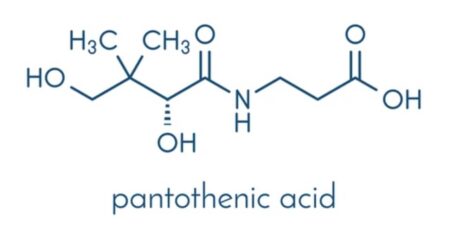
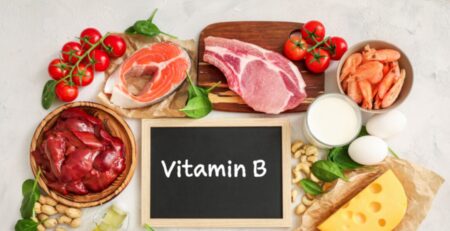



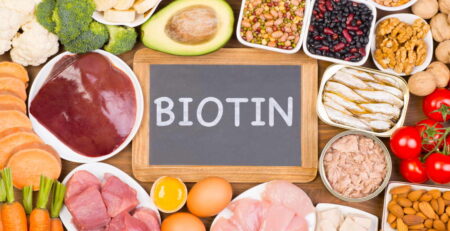

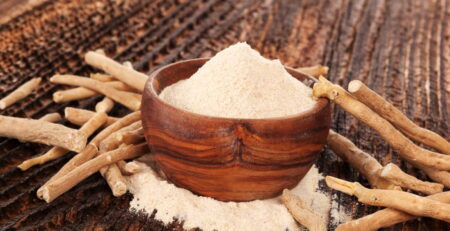

Leave a Reply